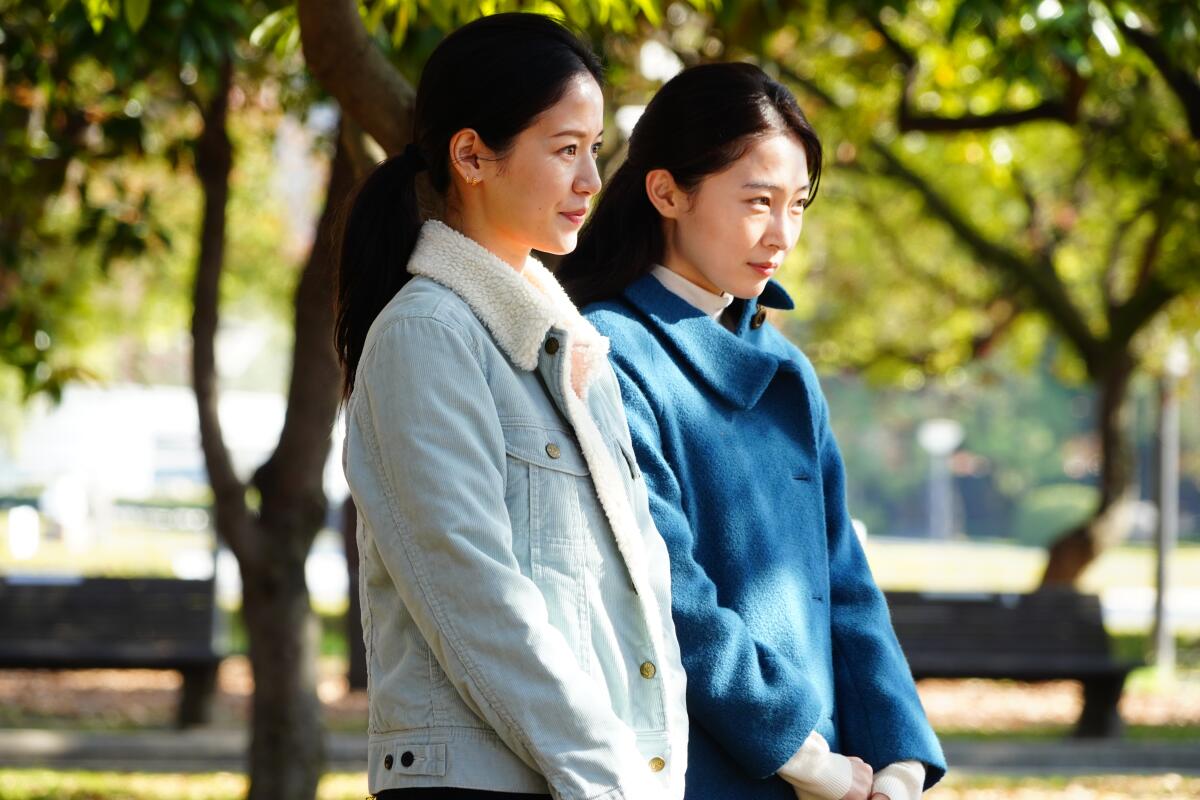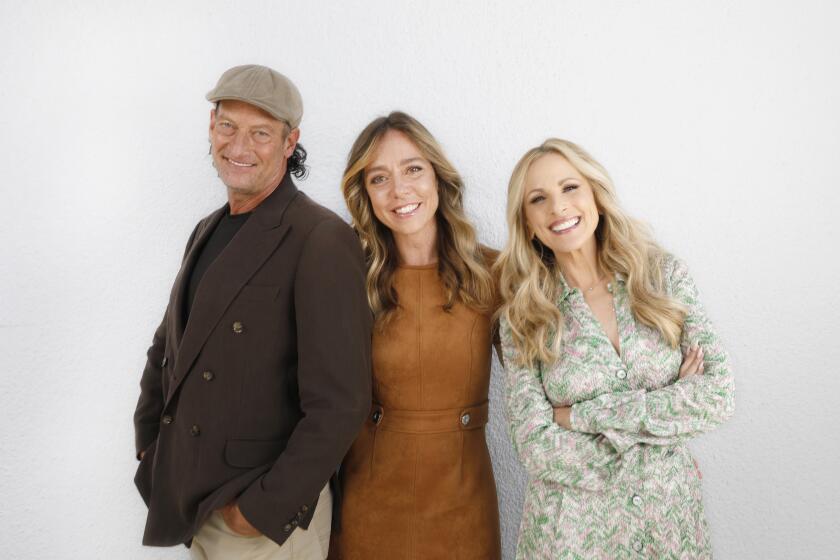How ASL interpretation is being handled at this year’s Oscars — with tablets and YouTube

Deaf actors, Deaf culture and sign language are stepping into the limelight in stunning fashion at the 94th Academy Awards ceremony — with three films prominently featuring all three up for major awards.
“CODA,” about the musically talented hearing child of deaf parents, is a favorite to win best picture, and its lead, Troy Kotsur, is similarly favored to win supporting actor. “Audible,” up for documentary short subject, is about a football team at Maryland School for the Deaf. And “Drive My Car,” a film about a theater director’s journey through grief, which is up for both best picture and international feature, features Park Yurim as a mute actress who uses Korean Sign Language to heartbreakingly beautiful effect.
The Academy of Motion Picture Arts and Sciences’ Office of Representation, Inclusion and Equity, which was created in 2020 and is overseen by Jeanell English, is working to make sure that deaf nominees and guests at the ceremony, as well as the legions of deaf fans watching from home, have a stellar experience. A big part of that is ensuring there is top-notch translation readily available for everyone who needs it.
“You can’t have an inclusive, beautiful experience if you don’t have accessibility,” says English, the academy’s vice president of impact and operations. “This is an organization fully committed to understanding people’s lived experiences.”
From the Oscars going back to Sundance, why ‘CODA’ was always something special.
This year the academy will test out tablet technology for the purposes of translation. Guests at the Dolby Theatre can request a tablet at their seat, which hooks into the cup holder. Each tablet, says English, features a fully adjustable arm, so guests can move it into a position that best suits them. Two ASL interpreters, situated in a room directly next to the main house, will sign everything that happens inside the Dolby, and they will be live-streamed to those tablets.
The room the interpreters will be sitting in will be wired up to deliver sound from all over the venue, so the interpreters will be able to communicate various ambient conversations to the tablets, says English.
“It will be a truly immersive experience,” she says.
Two additional interpreters will stand inside the theater, each positioned near guests who may not have access to tablets because of their seating arrangements, but who still need access to an interpreter. Guests will be seated so they can clearly see the hands and faces of the interpreters, so they don’t miss any name signing, or other nuances of the language.

Nominees, including Kotsur, are expected to attend with their personal interpreters, says English, and those people will be provided seats at the ceremony.
“Those personal interpreters are encouraged by us, but their job isn’t to interpret the show, so that’s where the academy has stepped in,” she adds.
The academy also had discussions with Kotsur, and with the producers of films featuring deaf talent, about what their needs might be should they win and find themselves on stage, says English.
“For the ‘CODA’ team, it was important that even if there wasn’t a deaf nominee accepting an award, that they still have an interpreter with them,” says English. “And we’re making sure that we’re doing our part to highlight that.”
The “Audible” team, says English, has requested the academy provide an onstage interpreter should their doc win; and Kotsur will bring his personal interpreter to the stage with him should he nab the supporting actor statuette (as is widely predicted).
“Troy has an incredible interpreter who has been with him all season,” says English. “They are a beautiful team.”
Ahead of Sunday’s 94th Academy Awards, here’s your guide to who’s hosting, who’s nominated, why there’s been controversy, and when and where to tune in.
Viewers at home can access a dedicated YouTube stream of two certified deaf interpreters signing the broadcast. Fans can use a second screen to “experience an enhanced version of the Oscars with ASL,” says English.
English says she can not speak confidently about how ASL interpretation has been handled at past awards ceremonies, but that the goal moving forward is to keep this new arrangement — building on it to make it even better in years to come.
Marlee Matlin, who stars alongside Kotsur in “CODA,” became the first Deaf performer to win an Oscar in 1987 for her performance in “Children of a Lesser God.” She signed her acceptance speech while an interpreter standing on the steps below her spoke it for the hearing people in the audience.
That was 35 years ago. Kotsur is the first Deaf performer to be nominated for an acting Oscar since then. Although last year, hearing actors Riz Ahmed and Paul Raci (who is a child of deaf parents) were nominated for lead actor and supporting actor, respectively, for their roles playing men who have lost their hearing in “Sound of Metal.”
Interpreters were featured at last year’s Oscars ceremony, says English, but it was a unique case because of enhanced COVID protocols. The show was held at Union Station, and interpreters were positioned near tables where deaf guests were seated.
The academy has learned a great deal since then, says English, including that there are many different ways, “to engage and encourage access.” It’s work, she says, that will be ongoing.
More to Read
Only good movies
Get the Indie Focus newsletter, Mark Olsen's weekly guide to the world of cinema.
You may occasionally receive promotional content from the Los Angeles Times.












